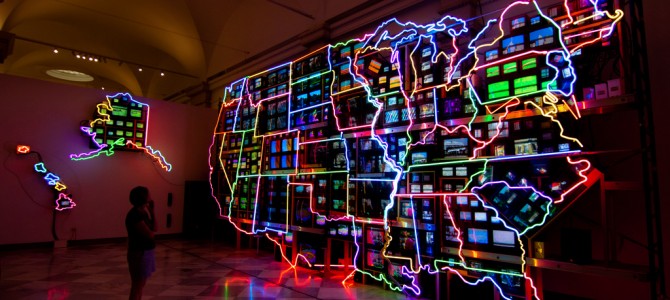
A federal court’s recent decision to strike down the FCC’s net neutrality rules has brought the controversial regulation back into the national spotlight. Under the rule, ISPs are required to treat all legal data on the internet without regard to content or user. The regulation mandates, for example, that a megabyte of Troll 2 you are streaming from Netflix can be treated no differently by your provider than a megabyte of Downton Abby your more sophisticated neighbor is streaming from the PBS website. The argument for net neutrality, therefore, rests on the assumption that all internet data is of equal value.
But is the assumption correct? Do data and bandwidth exist in a place where the laws of economics cease to exist?
The campaign for net neutrality has been fueled in large part by the idea that providers like Verizon, Cox, and Comcast cannot be trusted to determine the value of different forms of data, and must therefore be compelled by law to remain neutral. To advance their cause, advocates have forwarded a number of hypothetical scenarios in which ISPs discriminate against certain types data for arbitrary or even nefarious reasons.
These hypotheticals were on full display in the media coverage that followed the court’s decision. Esquire, for example, brought the hysteria to a near-parody level in their write-up:
[Say y]ou’re struggling with depression because it’s hard to cope with your mother’s recently diagnosed cancer. You go to cancerforums.net. You go to takethislife.com for help, when you can’t read the cancer forum anymore.
One day, those sites take ten times longer to load than they did before. What if you called your Internet service provider and their answer was, “Verizon now throttles bandwidth to websites from the non-Premium Tier. Would you like to upgrade?”
And after Verizon is done with those free riding cancer patients, it won’t be long before they stick it to those mooching war widows and surly nuns.
These nightmare scenarios have been enough to push many, including some pro-market conservatives, into the pro-net neutrality column. Admittedly, such scenarios are possible in an unregulated market, but should we be so quick to abandon the price system because the possibilities make us nervous?
If we’re relying on hypotheticals to support the case for net neutrality, we should also consider them in the case against it. As with any other area of the economy, we should take unintended consequences into account when considering price controls.
Let’s start with a newsflash: the internet is not free. There are considerable amounts of infrastructure and resources necessary to sate America’s thirst for cat photos and high definition pornography. While our demand for data is practically limitless, bandwidth is a scarce resource. As with every other scarce resource, consumption must be efficiently rationed either by the market or by the government.
Think of bandwidth as the internet version of gasoline. If the price of gasoline is kept artificially low the resulting level of consumption will result in shortages. The shortages could lead to gas lines, just as it did when President Nixon imposed price controls during the 1973 oil crisis. The same principle applies to bandwidth, but rather than having too little gasoline to accommodate automobiles, we’ll have too little bandwidth to accommodate the amount of data being transferred. The result is called a bottleneck. Instead of waiting in gas lines, users will experience periods of system-wide slow-down.
Widespread bottlenecks aren’t some far flung hypothetical, but a real possibility as all of our entertainment moves online and ISPs scramble to keep up with the surging demand. If these shortages occur under the net neutrality regime, all data will suffer slowdowns equally. That means essential services that rely on the internet will suffer just as much as Netflix. Emergency service dispatches that rely on internet will be slower because –for the sake of neutrality– they can’t be considered any more important than bondage videos.
Both government and the ISP’s will be unable to do anything about it without running afoul net neutrality laws, which would essentially guarantee that the doctor consulting his patients over Skype will suffer so you can stream House of Cards to your Roku box without the fear of ever having to foot an additional cost.
An unregulated internet leaves open the possibility that it will become a much different place in the coming years, not only in the way we use it but in the way we pay for it. It’s important to remember, however, that price controls don’t come without consequences of their own; consequences that could cast doubt on just how “fair” net neutrality makes the internet.
Nick Rizzuto is the supervising producer of Real News on TheBlaze TV.









